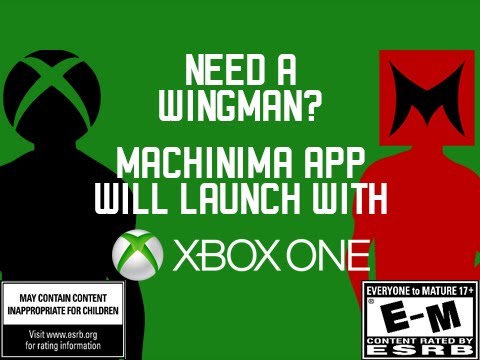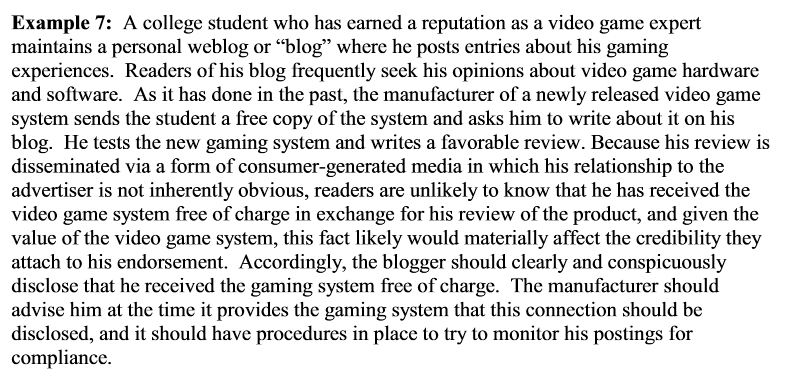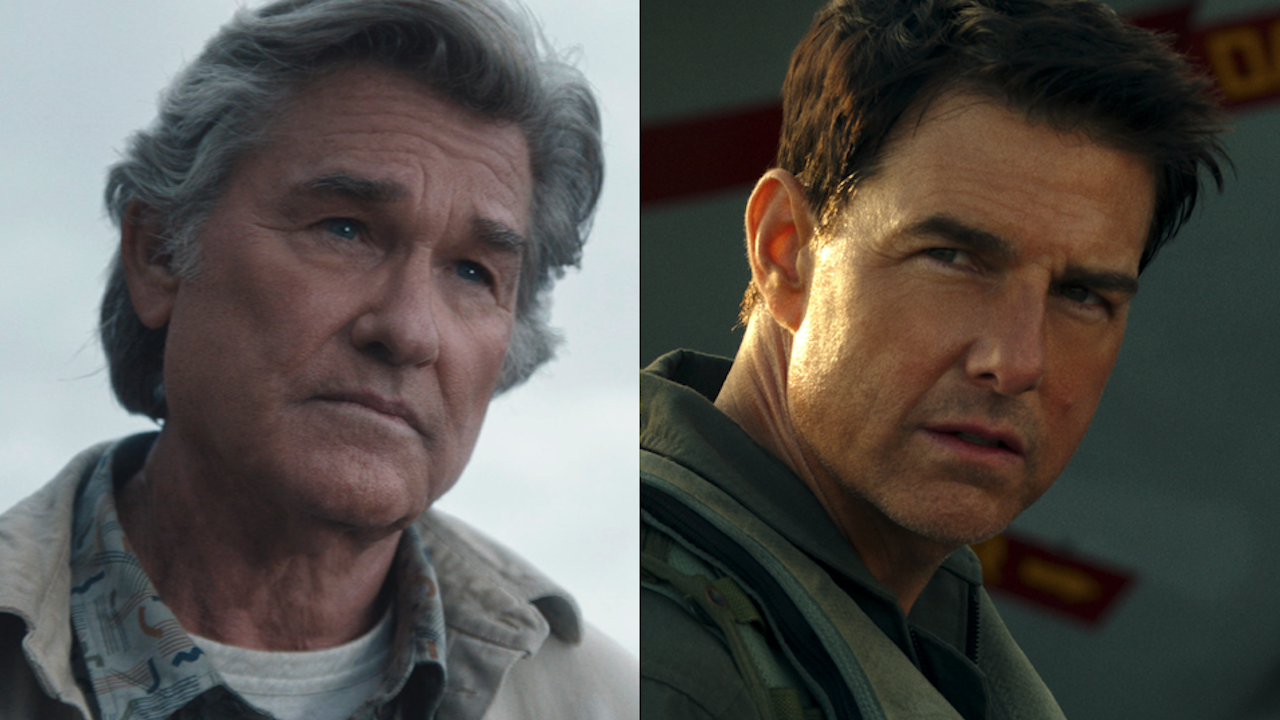Microsoft And Machinima's Xbox One YouTube Promotion May Be Unlawful According To FTC Guidelines

Your Daily Blend of Entertainment News
You are now subscribed
Your newsletter sign-up was successful
[Update: Microsoft and Machinima respond to the XB1M13 campaign controversy]
There has been a raging debate over the last couple of days about Microsoft's latest promotional campaign for the Xbox One in association with partnered and affiliated YouTube personalities under the Machinima network. The debate hinges on the ethics of the marketing plan to shift the negative perspective of the Xbox One into a more positive light by getting YouTubers to positively promote the Xbox One and its software to their channel subscribers and the general public at large. Well, according to the rules of the Fair Trade Commission, this collaboration between Microsoft and Machinima could be classified as unlawful endorsements with deceptive intent.
Things originally got underway when an alleged e-mail from Machinima was leaked to the public thanks to NeoGaf. We reported on the scenario that caused quite a bit of ruckus between gamers, because some people felt that it was just Microsoft paying to market the Xbox One, like any other business out there. Others felt it was disingenuous and dishonest because trusted YouTube personalities would be using their reputation to promote the Xbox One for the sake of some monetary compensation.
Now, technically, promoting a product for a company is not illegal or unlawful. You can, in fact, endorse a product for a company for any number of reasons. Things get sketchy, however, when the rules are not properly adhered to regarding funded endorsements for advertisement purposes.
The supposed e-mail from Machinima – which is available for viewing in its entirety on Pastebin – makes it clear that the Xbox One promotional “Campaign” that started on January 14th and will run up until February 9th, will not tolerate negative or disparaging remarks against the Xbox One or Machinima. This was also alluded to in the Poptent post as noted on Ars Technica. As stated in section 3., labeled “Duties”, sub-section 2...
“ You may not say anything negative or disparaging about Machinima, Xbox One or any of its Games in your Campaign Video;”
The videos must contain, at a minimum, 30 seconds of game footage that's clearly labeled for the Xbox One, and the videos must be no less than 60 seconds in length. The YouTube content creator must also identify that the game is being played on the Xbox One, however, there is no mention in the agreement that the user must make it clear that they are being compensated directly for any positive inference made about, or to, the Xbox One.
In fact, Machinima forbids any registered partners or affiliates from making it known that they are being compensated for positive promotion of the Xbox One, with the e-mail stating under section 5., labeled “Confidentiality”...
Your Daily Blend of Entertainment News
“You agree to keep confidential at all times all matters relating to this Agreement, including, without limitation, the Promotional Requirements, and the CPM Compensation, listed above. You understand that You may not post a copy of this Agreement or any terms thereof online or share them with any third party (other than a legal or financial representative). You agree that You have read the Nondisclosure Agreement (attached hereto and marked as Exhibit “A”) and You understand and agree to all of terms of the Nondisclosure Agreement, which is incorporated as part of this Agreement.”
An NDA that prevents content creators from acknowledging paid-endorsements for products. That's exactly what that's saying.
This is in direct violation of the Federal Trade Commission's endorsement and testimonial advertising laws. As stated in the FTC guidelines under section 255.0 sub-section (b) on the official website...
“For purposes of this part, an endorsement means any advertising message (including verbal statements, demonstrations, or depictions of the name, signature, likeness or other identifying personal characteristics of an individual or the name or seal of an organization) that consumers are likely to believe reflects the opinions, beliefs, findings, or experiences of a party other than the sponsoring advertiser, even if the views expressed by that party are identical to those of the sponsoring advertiser. The party whose opinions, beliefs, findings, or experience the message appears to reflect will be called the endorser and may be an individual, group, or institution.”

In this regards, it means that YouTubers expressly promoting the Xbox One for monetary gain, even if the view they are promoting does not directly reflect how they actually feel about the product, but is, instead, done for the purpose of endorsing the product due to monetary gain, falls under deceptive advertising. This rings especially true when the endorser doesn't make it explicitly clear that they are promoting the product from a company for the purpose of monetary gain.
An example of this kind of situation is used in Example 6 under section 255.5, where the FTC guide states...
“The producer's staff reviews the profiles of individuals interested in working as “extras” in commercials and identifies several who are interested in automobiles. The extras are asked to use the product for several weeks and then report back to the producer. They are told that if they are selected to endorse the product in the producer’s infomercial, they will receive a small payment. Viewers would not expect that these“consumer endorsers”are actors who were asked to use the product or that they could appear in the commercial or that they were compensated. Because the advertisement fails to disclose these facts, it is deceptive.”
If you think this is harmless or not that big a deal – “just marketing”, as some say – keep in mind that this promotional campaign for the Xbox One has an estimated outreach of 1.25 million potential views. That may seem small to some people, but that's still enough to alter a lot of people's perception of a product when all those views are being filtrated through positive-only videos from YouTubers registered to make the Xbox One look good.
In fact, an even more exacting example was used to help drive home the point by the FTC, with Example 7 under section 255.5 clearly relating to this very exact same situation.

Let me blockquote the most important part...
“Accordingly, the blogger should clearly and conspicuously disclose that he received the gaming system free of charge. The manufacturer should advise him at the time it provides the gaming system that this connection should be disclosed, and it should have procedures in place to try to monitor his postings for compliance.”
In this case, Machinima is expressly binding YouTube affiliates and partnered content creators from divulging the fact that they are being paid to promote the Xbox One in exchange for monetary gain. It's a contract designed to force YouTubers around an unlawful act of advertisement. This was done last year by Machinima during E3, but it seemed far less dubious than this latest case, as reported by Examiner.
Some YouTubers have also already started posting videos with the XB1M13 tag, whether they're affiliated with Machinima or not, such as christrout91, Ag Bean3r, MYM ALK4PON3 and Deniso, each of which has more than a thousand views on their XB1M13 videos. Interestingly, Game Society Pimps has the tag on a couple of videos, even though some of their Dead Rising 3 content is a month old. These are just a few of the many out there using the XB1M13 tag, and promoting the Xbox One and its games in a positive manner.
The thing is, even if a YouTube personality isn't associated with Machinima and starts tagging their videos and changing up their content to promote the Xbox One in hopes of gaining attention or trying to sway the network overlords to compensate them, it's a sub-conscious guerrilla marketing tactic to sway the shape of new media and how those looking for a little extra monetary gain will alter their tune in hopes of possibly gaining some kind of financial compensation out of it.
You have to admit, Microsoft is smart for planting a marketing seed rooted in the barest form of potential success: greed.
Some users have supposedly stated – though it has yet to be verified – that they reported this situation for unlawful endorsing, but we'll see if anything actually comes out of it. If you feel this is a form of unlawful advertising and endorsement, feel free to contact the Fair Trade Commission about the issue by filing a complaint.
Staff Writer at CinemaBlend.

